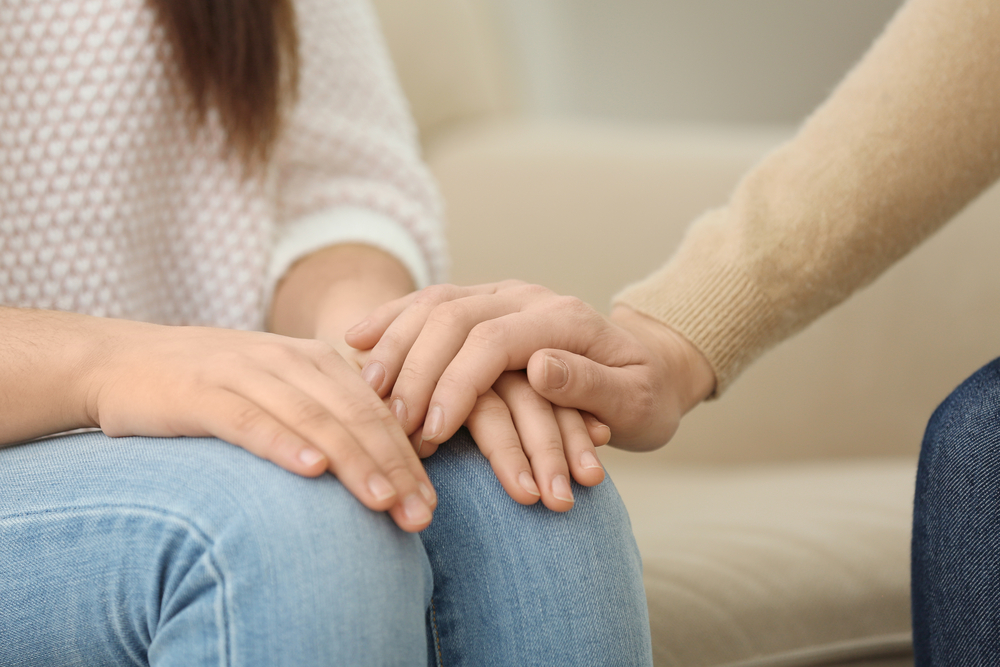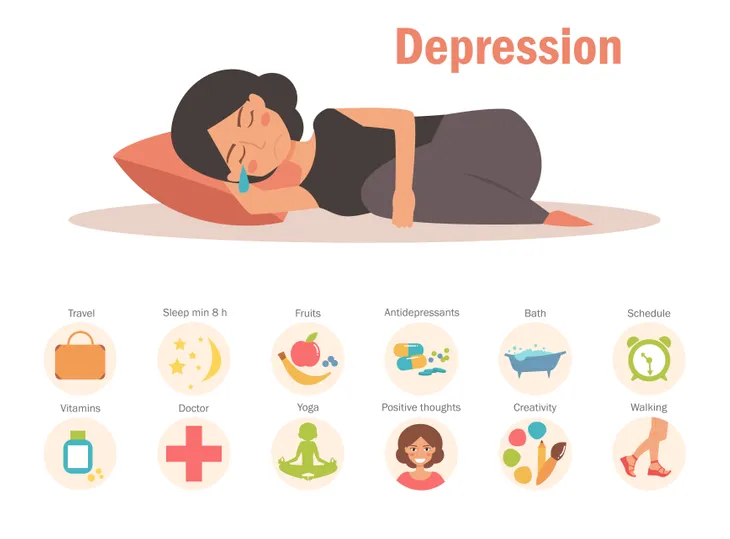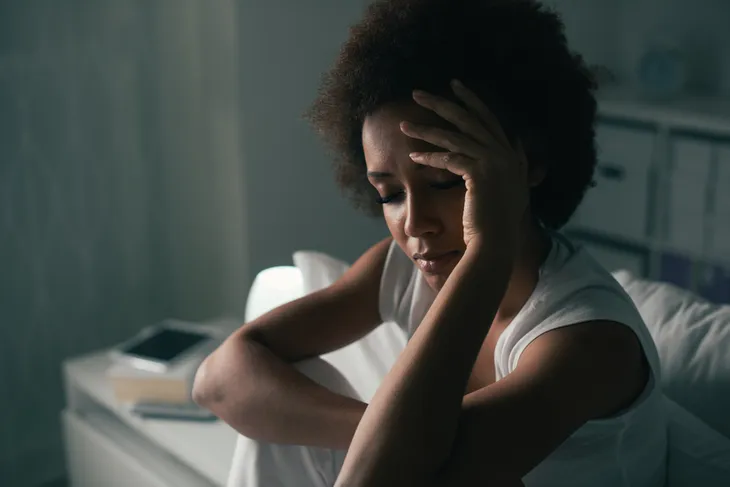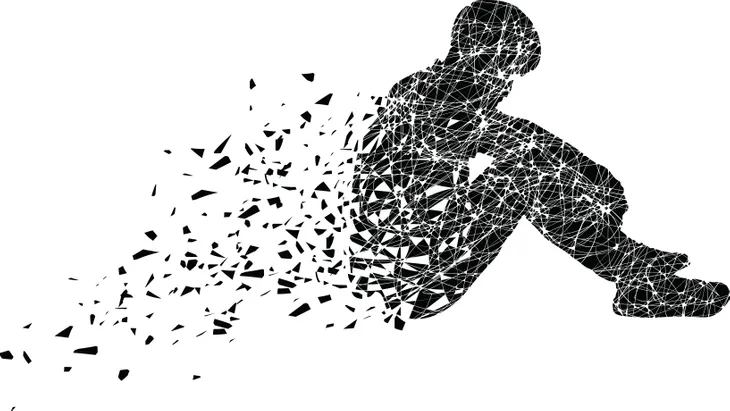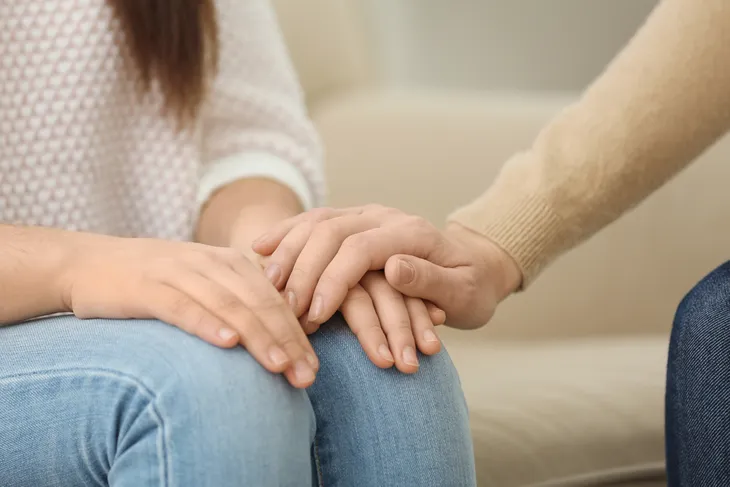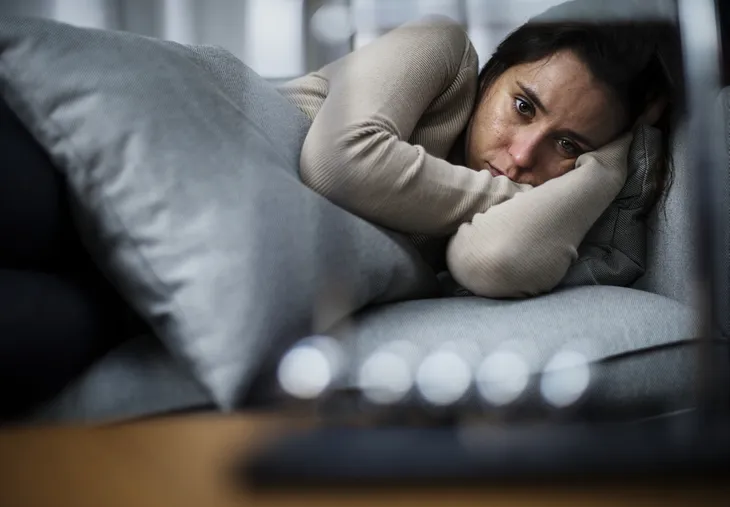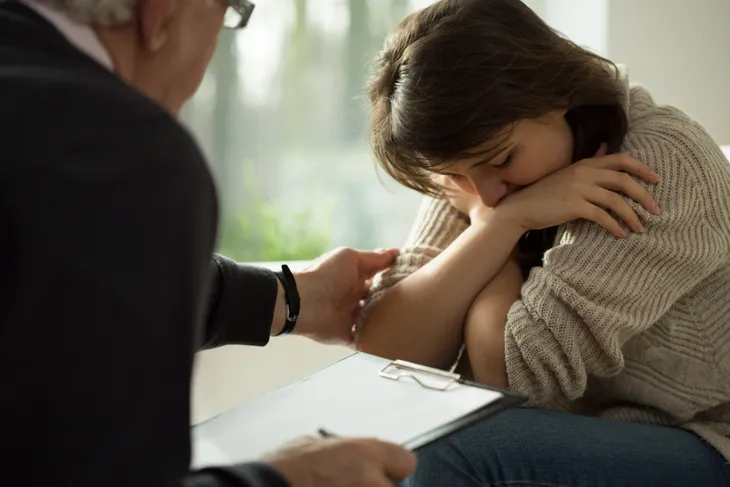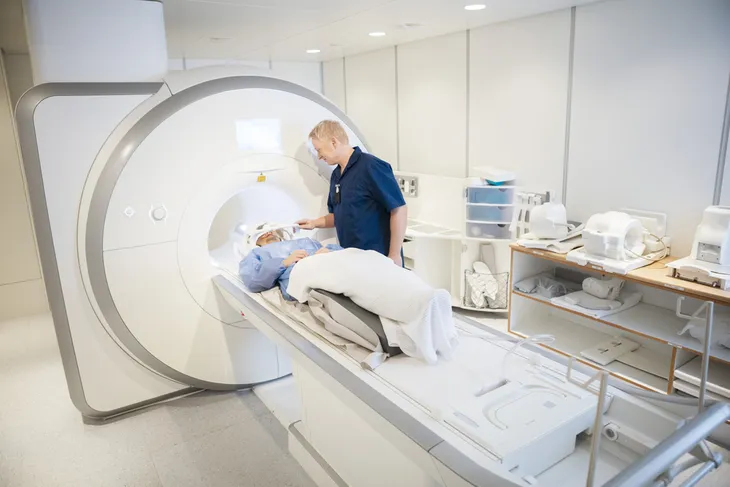Everyone gets sad once in a while, and commonly the phrase “I feel depressed” is used to describe these temporary feelings of melancholy. However, while sadness is a normal human emotion, depression is a recognized mental illness.
It’s important to be able to distinguish between the two, as it will help you address it (or help you address it in a loved one). Sadness will pass, but depression often takes treatment to overcome and shouldn’t be ignored. Here are 12 ways to tell the difference between them…
By The Symptoms
Sadness may mimic depression for a short time – but as Healthline points out, “you should also have moments when you are able to laugh or be comforted.” Depression, on the other hand, is a different beast.
Depression creeps into all aspects of your life, making it tough to get enjoyment from the things that normally bring you joy. There can also be physical symptoms such as body aches, along with feelings of worthlessness, and suicidal thoughts – the latter a clear sign of a bigger problem than sadness, which should pass in 2-weeks or less according to the source.
Judging By Length
Think of sadness and depression as 2-different types of runners. Sadness is a sprinter, and depression is more of an endurance runner. Psychology Today explains that in order to get a depression diagnosis, you must have had feelings of sadness continuously for more than 2-weeks.
Of course, duration is not the only judge of sadness vs. depression – but if you’ve been struggling with sadness for weeks or months and can’t seem to shake it, it’s time to seek medical help.
Depression Doesn’t Always Have a Trigger
Sadness is often caused by a specific event – for example, the loss of a loved one. That can take some time to get over, and you may have recurring bouts of sadness, but it’s clear what the trigger is. In some cases, extreme grief can lead to a depression diagnosis, as we’ll get to later.
However, as PsychCentral.com points out, “for the vast majority of people with depression, there is no reason and there is no cause for their feelings.” Depression can be made worse because outsiders may not sympathize with you if you haven’t experienced some kind of stressor that would cause sadness, it adds.
Disrupted Eating and Sleep Patterns
When you’re depressed, it will show up in other ways – while people who are sad sometimes comfort themselves with food, those who are depressed often lose interest in food or eat at irregular intervals.
Meanwhile, depression can cause “significant weight loss when not dieting,” warns WebMD. Some patients may also gain weight. Those who normally sleep through the night might find themselves unable to fall asleep or stay asleep, while others may sleep too much, it adds.
No Joy in Depression
Even with persistent depressive disorder (formerly known as dysthymic disorder), which is a type of chronic depression classified as less severe than major depressive disorder, the patient may feel little or no joy in their lives, says AllAboutDepression.com.
“If you have dysthymia you may be unable to remember a time when you felt happy, excited, or inspired,” adds the source. This type of depression affects women up to three times more than men, it notes, and a diagnosis is given when continuous symptoms of depression have lingered for 2-years or more.
What the Manual Says About It
There’s a publication used by medical professionals called the Diagnostic and Statistical Manual of Mental Disorders (DSM), which helps determine whether a patient has sadness or depression. The latest version, DSM-5, has a significant change, notes PsychCentral.
While those with depression will have telltale signs such as a depressed mood most of the day – nearly every day – as well as a lowered interest in activities and fatigue – depression may now also be diagnosed in a patient suffering from grief if it continues for weeks. “This change was made with the rationale that since bereavement may induce great suffering in a person, it may induce an episode of major depressive disorder,” it explains.
Sadness is Not Hereditary
As we’ve noted, sadness is a fact of life – those who go through life without feeling sadness or regret may have other issues (such as being a sociopath or even a psychopath).
However, there are risk factors associated with depression, such as genetic factors, explains Healthline. “Having an immediate family member with depression or a mood disorder can increase your risk for depression,” it notes. “Biochemical factors” such as low levels of certain brain neurotransmitters (such as serotonin and dopamine) can also play a role, it adds. Sleep disorders and chronic illnesses are also associated with depression.
Sadness Can Come and Go
As Bustle.com explains, “the blues are not a life sentence,” meaning there might be times when you forget about your sadness if you’re distracted by something else.
However, depression often means you won’t be able to break free from the low mood even if a parade goes by. Okay, the source doesn’t actually use that example, but we’re using it to make a point about the severity. However, it does say in moderate depression a person may have “bright spots” from time to time.
Self-Blaming and Self-Harming
While sadness is generally triggered by an outside event, it doesn’t usually cause a person to lose their self-esteem or engage in self-harming behaviors. That’s not the case for depression, unfortunately.
While depression often causes a person to experience “feelings of worthlessness, or excessive or inappropriate guilt,” notes WebMD, there can also be physical harm inflicted on oneself – usually an attempt to break out of the cycle of feeling numb or distract from negative thoughts, note other sources.
When to See a Doctor
If you’ve been sad for a few days, and there’s an identifiable trigger, then a doctor visit may not be necessary. However, when the feelings of sadness linger (whether there’s a trigger or not), and there are the other signs – especially suicidal thoughts – WebMD says it’s time to seek medical help.
WebMD also says to consult a doctor immediately if you’re hearing voices that aren’t there, and make an appointment soon if you’re not finding enjoyment in anything and feeling hopeless.
Brain Scans Detect Types of Depression
According to a 2017 article from Mental Floss, scientists have found “neurological evidence” of 4-subtypes of depression, distinguished by looking at functional magnetic resonance imaging (fMRI) scans.
It points to research that looked at scans from 17 research sites around the world, looking at 1,188-people (about 40-percent with depression). Not only did the research team find differences in brain scans of those with depression and those without, “they also found differences within the group of depressed people,” notes the source.
A Treatment for Sadness?
There’s no actual pill for sadness – although exercise and socializing can help elevate mood. In fact, the Greater Good magazine suggests temporary sadness may even serve a worthy purpose and be “good for you” by improving memory, motivation and interactions.
However, depression is treatable with a pill –Selective serotonin reuptake inhibitors (SSRIs) are commonly prescribed. There could be side effects to some of the medications, and it’s not the only line of defense against depression. Psychotherapy (a non-drug approach to address negative habits) is also helpful for most people with depression, says the Mayo Clinic.
